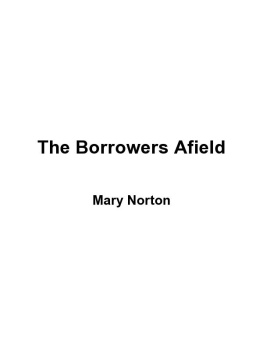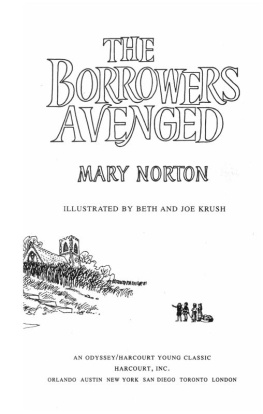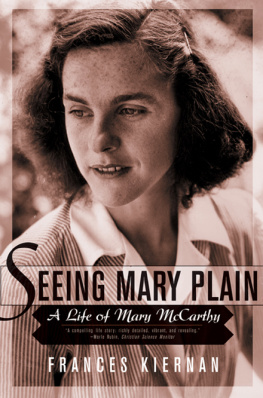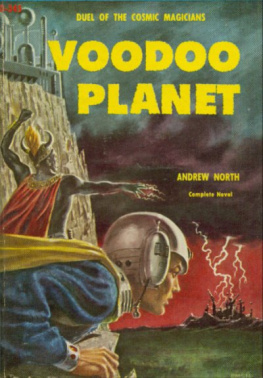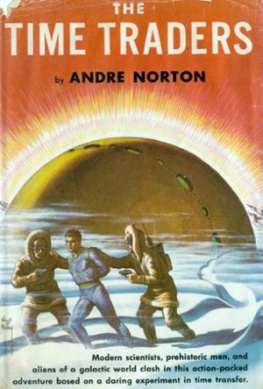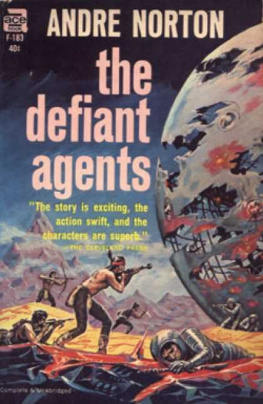Mary Norton - The Borrowers Afield
Here you can read online Mary Norton - The Borrowers Afield full text of the book (entire story) in english for free. Download pdf and epub, get meaning, cover and reviews about this ebook. year: 1955, publisher: Harcourt Childrens Books, genre: Art. Description of the work, (preface) as well as reviews are available. Best literature library LitArk.com created for fans of good reading and offers a wide selection of genres:
Romance novel
Science fiction
Adventure
Detective
Science
History
Home and family
Prose
Art
Politics
Computer
Non-fiction
Religion
Business
Children
Humor
Choose a favorite category and find really read worthwhile books. Enjoy immersion in the world of imagination, feel the emotions of the characters or learn something new for yourself, make an fascinating discovery.
- Book:The Borrowers Afield
- Author:
- Publisher:Harcourt Childrens Books
- Genre:
- Year:1955
- Rating:5 / 5
- Favourites:Add to favourites
- Your mark:
- 100
- 1
- 2
- 3
- 4
- 5
The Borrowers Afield: summary, description and annotation
We offer to read an annotation, description, summary or preface (depends on what the author of the book "The Borrowers Afield" wrote himself). If you haven't found the necessary information about the book — write in the comments, we will try to find it.
The Borrowers Afield — read online for free the complete book (whole text) full work
Below is the text of the book, divided by pages. System saving the place of the last page read, allows you to conveniently read the book "The Borrowers Afield" online for free, without having to search again every time where you left off. Put a bookmark, and you can go to the page where you finished reading at any time.
Font size:
Interval:
Bookmark:
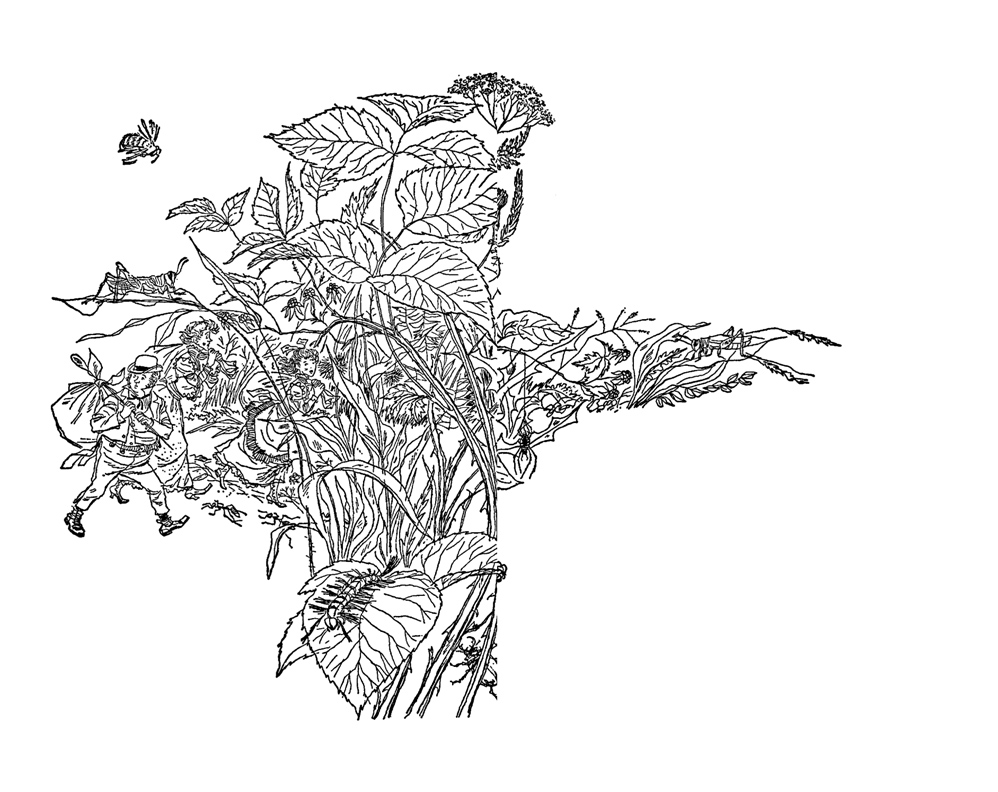
Copyright 1955 by Mary Norton
Copyright renewed 1983 by Mary Norton
All rights reserved. No part of this publication may be reproduced
or transmitted in any form or by any means, electronic or mechanical,
including photocopy, recording, or any information storage and retrieval
system, without permission in writing from the publisher.
Requests for permission to make copies of any part of the work should be
mailed to the following address: Permissions Department, Harcourt, Inc.,
6277 Sea Harbor Drive, Orlando, Florida 32887-6777.
www.HarcourtBooks.com
First Harcourt Young Classics edition 1998
First Odyssey Classics edition 1990
First published 1955
Library of Congress Cataloging-in-Publication Data
Norton, Mary.
The Borrowers afield/Mary Norton; illustrated by Beth and Joe Krush.
p. cm
"An Odyssey/Harcourt Young Classic."
Sequel to: The Borrowers.
Summary: The further adventures of the family of miniature people
who, after losing their home under the kitchen floor of an old
English house, are forced to move out to the fields.
[1. Fantasy.] I. Krush, Beth, ill. II. Krush, Joe, ill. III. Title.
PZ7.N8248Bi 1986 [Fic] 86-4741
ISBN 0-15-210166-7 ISBN 0-15-204732-8 (pb)
Printed in the United States of America
BB DD FF GG EE CC
C E G H F D (pb)
"What has been, may be."
First recorded eclipse of the moon, 721 B.C.
[Extract from Arrietty's Diary and
Proverb Book, March 19th]
I T WAS K ATE who, long after she was grown up, completed the story of the borrowers. She wrote it all out, many years later, for her four children, and compiled it as you compile a case-history or a biographical novel from all kinds of evidencethings she remembered, things she had been told and one or two things, we had better confess it, at which she just guessed. The most remarkable piece of evidence was a miniature Victorian notebook with gilt-edged pages, discovered by Kate in a game-keeper's cottage on the Studdington estate near Leighton Buzzard, Bedfordshire.
Old Tom Goodenough, the game-keeper, had never wanted the story put in writing but as he had been dead now for so many years and as Kate's children were so very much alive, she thought perhaps that wherever he might be (and with a name like Goodenough it was bound to be Heaven) he would have overcome this kind of prejudice and would by now, perhaps, forgive her and understand. Anyway, Kate, after some thought, decided to take the risk.
When Kate had been a child herself and was living with her parents in London, an old lady shared their home (she was, I think, some kind of relation): her name was Mrs. May. And it was Mrs. May, on those long winter evenings beside the fire when she was teaching Kate to crochet, who had first told Kate about the borrowers.
At the time, Kate never doubted their existencea race of tiny creatures, as like to humans as makes no matter, who live their secret lives under the floors and behind the wainscots of certain quiet old houses. It was only later that she began to wonder (and how wrong she was she very soon found out: there were still to be, had she only known it, developments more unlooked for and extraordinary than any Mrs. May had dreamed of).
The original story had smacked a little of hearsay: Mrs. May admittedin fact, had been at some pains to convince Katethat she, Mrs. May, had never actually seen a borrower herself; any knowledge of such beings she had gained at second-hand from her younger brother, who, she admitted, was a little boy with not only a vivid imagination but well known to be a tease. So there you were, Kate decidedthinking it over afterwardsyou could take it or leave it.
And, truth to tell, in the year or so which followed she tended rather to leave it: the story of the borrowers became pushed away in the back of Kate's mind with other childish fantasies. During this year she changed her school, made new friends, acquired a dog, took up skating and learned to ride a bicycle. And there was no thought of borrowers in Kate's mind (nor did she notice the undercurrent of excitement in Mrs. May's usually calm voice) when, one morning at breakfast in early spring, Mrs. May passed a letter across the table, saying, "This will interest you, Kate, I think."
It didn't interest Kate a bit (she was about eleven years old at the time): she read it through twice in a bewildered kind of way but could make neither head nor tail of it. It was a lawyer's letter from a firm called Jobson, Thring, Beguid and Beguid. Not only was it full of long words like "beneficiary" and "disentailment" but even the medium-sized words were arranged in such a manner that, to Kate, they made no sense at all. (What for instance could "vacant possession" mean? However much you thought about it, it could only describe a state of affairs which was manifestly quite impossible.) Names there were in plentyStuddington, Goodenough, Amberforce, Pocklintonand quite a family of people who spelled their name "deceased" with a small "d."
"Thank you very much," Kate had said politely, passing it back.
"I thought, perhaps," said Mrs. May (and her cheeks, Kate noticed, seemed slightly flushed as though with shyness), "you might like to go down with me."
"Go down where?" asked Kate, in her vaguest manner.
"My dear Kate," exclaimed Mrs. May, "what was the point of showing you the letter? To Leighton Buzzard, of course."
Leighton Buzzard? Years afterwards, when Kate described this scene to her children, she would tell them how, at these words, her heart began to thump long before her mind took in their meaning. Leighton Buzzard ... she knew the name, of course: the name of an English country town ... somewhere in Bedfordshire, wasn't it?
"Where Great Aunt Sophy's house was," said Mrs. May, prompting her. "Where my brother used to say he saw the borrowers." And before Kate could get back her breath she went on, in a matter-of-fact voice, "I have been left a little cottage, part of the Studdington estate, and"her color deepened as though what she was about to say now might sound slightly incredible"three hundred and fifty-five pounds. Enough," she added, in happy wonderment, "to do it up."
Kate was silent. She stared at Mrs. May, her clasped hands pressed against her middle as though to still the beating of her heart.
"Could we see the house?" she said at last, a kind of croak in her voice.
"Of course, that's why we're going."
"I mean the big house, Aunt Sophy's house?"
"Oh, that house? Firbank Hall, it was called." Mrs. May seemed a little taken aback. "I don't know. We could ask, perhaps; it depends of course on whoever is living there now."
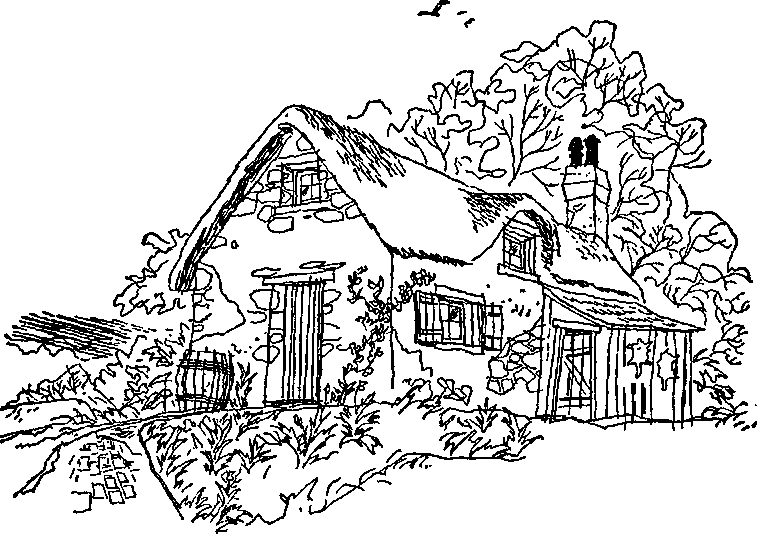
"I mean," Kate went on, with controlled eagerness, "even if we couldn't go inside, you could show me the grating, and Arrietty's bank; and even if they opened the front door only ever so little, you could show me where the clock was. You could kind of point with your finger, quickly" And, as Mrs. May still seemed to hesitate, Kate added suddenly on a note of anguish, "You did believe in them, didn't you? Or was it"her voice faltered"only a story?"
"And what if it were only a story?" said Mrs. May quickly, "so long as it was a good story? Keep your sense of wonder, child, and don't be so literal. Anything we haven't experienced for ourselves sounds like a story. All we can ever do is sift the evidence."
Next pageFont size:
Interval:
Bookmark:
Similar books «The Borrowers Afield»
Look at similar books to The Borrowers Afield. We have selected literature similar in name and meaning in the hope of providing readers with more options to find new, interesting, not yet read works.
Discussion, reviews of the book The Borrowers Afield and just readers' own opinions. Leave your comments, write what you think about the work, its meaning or the main characters. Specify what exactly you liked and what you didn't like, and why you think so.

